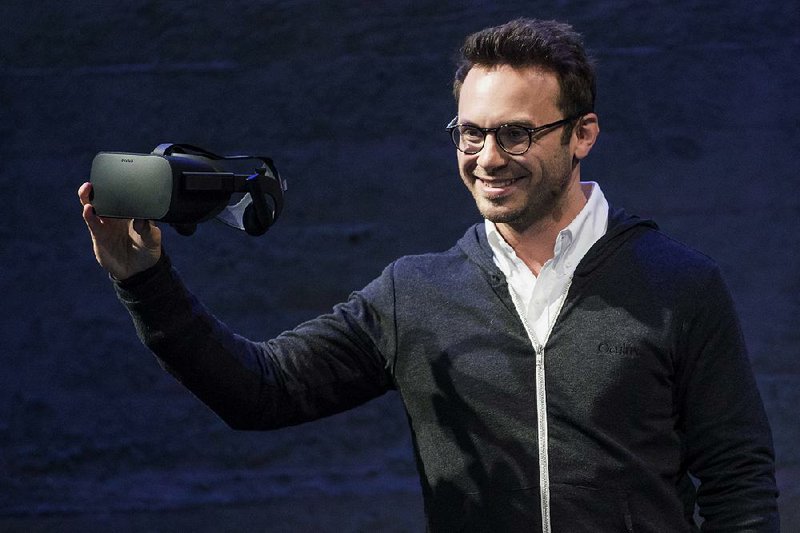SAN FRANCISCO -- Oculus Rift, the much-hyped virtual-reality system in development by a unit of Facebook, is getting closer to making its real-world debut.
At an event Thursday in San Francisco, Oculus unveiled the shipping version of its virtual-reality headset and announced a partnership with Microsoft that will allow users to beam games from the software giant's Xbox One console to the device, which will be available in the first quarter of 2016. The company also showed off some games that are in development for the system and announced that it had created a $10 million fund to jump-start independent game development for the system.
Oculus founder Palmer Luckey noted that for a long time, virtual reality has been a staple of science fiction. But Oculus "isn't science fiction," he said. "This is reality, and it's happening today."
The company also gave a glimpse of where it wants to take virtual reality, unveiling a pair of hand-held controllers for the Rift that it plans to ship in the first half of next year after launching the device. The Touch controllers will allow users to virtually see their hands in games, something they can't do with the game controller that will ship with the device. The new controllers will be able to sense the movement of their hands and even recognize gestures, such as a thumbs-up.
"We can't wait to see what developers have in store" for the new controllers, Luckey said.
Company officials said the Rift headset will come with a stand-alone sensor that will sit on users' desks. That sensor will track users' head movements as they are wearing the device, and their hands when they use the Touch sensors.
But the company held off on announcing many of the details that will be crucial to its success. Oculus has not yet said precisely how much the Rift will cost, which retailers will carry it, when exactly it will be hit store shelves, or how many games will be available when it launches.
Oculus officials said they plan to release more information about the device at the company's Connect conference in September.
The number and diversity of games available for the Rift could be a big potential trouble spot.
Oculus demonstrated only three games at the event last week, none of which represents a blockbuster title like Halo or Call of Duty. Although one of the games shown is being produced by Insomniac Games, the makers of the Resistance series of games, Oculus did not show off any games from any of the major game companies, such as Electronic Arts or Activision.
The success of new game systems is frequently determined by the number and range of games available for them. Fledgling systems can often suffer from a chicken-and-egg type scenario: Consumers won't buy them until more games are available for them, while developers won't create games for them until a significant number of them are in consumers' hands.
The company's $10 million fund is a way of trying to spur the development of more games for the system.
The developers who are working on games for the system said they are excited about it.
"They're pretty much on the forefront of pushing the technology," said David Adam, CEO of Gunfire Games, which is working on a title called Chronos for Oculus.
Oculus officials also declined to talk about nongame uses for the device, choosing instead to focus solely on gaming. Company officials said that was intentional, given the event was timed to immediately precede E3, the annual gaming convention in Los Angeles. Oculus plans to have working demos of games running on the device at the show.
Although the Rift has been the most prominent virtual-reality system in development, it's not the only one. For example, Valve's Steam division is working with smartphone maker HTC to create a rival virtual-reality system.
The coming proliferation of virtual-reality systems is going to leave gamers facing tough choices, said Brian Blau, an analyst with Gartner, a tech research firm.
"How many of these are you going buy? How many can you afford?" he asked.
SundayMonday Business on 06/15/2015
